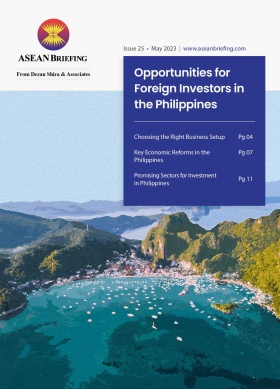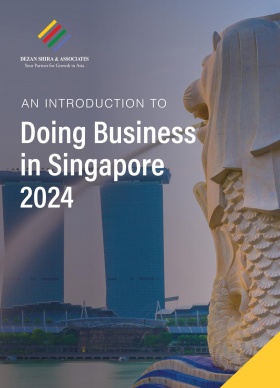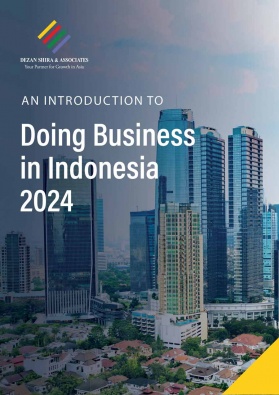The Philippines’ Revised VAT Policy on Foreign Digital Services from 2024
As of July 2024, the Philippines government began imposing a 12 percent VAT on non-resident (foreign) business-to-customer (B2C) services through Senate Bill 2528. The move aims to ensure a more competitive environment for local digital service providers.
The Philippines joins other countries in the region who sought to gain more tax revenue from foreign digital service providers. Singapore, Indonesia, and Malaysia introduced regulations to impose digital tax in 2020, while Thailand introduced a VAT on foreign digital service providers in 2021.
Under the Bill, foreign digital service providers are responsible for collecting, assessing, and remitting the value-added tax. The country’s Department of Finance anticipates the Bill to generate an estimated PHP 83.8 billion (US$1.4 billion) between 2024 and 2028. From this total, lawmakers plan to earmark five percent to develop the local creative industries.
Definition of digital service and digital service provider
Senate Bill 2528 defines a digital service as ‘any service supplied over the internet or electronic network with the use of information technology and where the supply of the service is automated’.
As such, this can include any of the following:
- Cloud service;
- Online marketplace;
- Digital goods;
- Search engines;
- Online media; and
- Online platforms.
A digital service provider is defined as either a ‘resident or non-resident supplier of digital services to a consumer who consumes digital services subject to VAT in the Philippines’. The digital service provider is considered a non-resident if it has no physical presence in the country.
VAT registration
The digital service provider must register for VAT purposes if their gross sales for 12 months exceed PHP 3 million (US$53,397). The Bureau of Internal Revenue aims to establish an automated registration system to facilitate these registrations.
Remitting VAT to the Bureau of Internal Revenue
If the customer is non-VAT registered (B2C transactions), the digital service provider is responsible for assessing, collecting, and remitting the VAT on the digital services.
However, if the customer is VAT-registered (B2B transactions) then it is the responsibility of the customer to withhold and remit the VAT to the Bureau of Internal Revenue under the reverse charge mechanism.
If a VAT-registered nonresident digital service provider is classified as an online marketplace, it must also pay VAT on transactions made by nonresident sellers on its platform. This applies if the marketplace controls key aspects of the sale and does any of the following: (a) sets the terms and conditions for selling goods; or (b) is involved in ordering or delivering the goods.VAT exemptions
Online courses, seminars, and training provided by private educational institutions accredited by DEPED, CHED, or TESDA, as well as those offered by government educational institutions will be exempt from VAT. Additionally, the sale of online subscription-based services to DEPED, CHED, TESDA, and educational institutions recognized by these agencies will also be VAT-exempt.
Furthermore, financial services provided by banks and non-bank entities through digital platforms will be included as VAT-exempt transactions.
Impact on the Philippines’ digital economy
The introduction of a 12 percent VAT on foreign digital services in the Philippines is expected to have significant implications for the country’s digital economy. On one hand, the tax aims to level the playing field between local and foreign digital service providers, ensuring fair competition and potentially boosting domestic businesses. Additionally, the anticipated revenue of PHP 83.8 billion from this measure will provide the government with crucial funds to invest in the local creative industries, fostering innovation and growth.
However, the new VAT could also increase the cost of digital services for consumers and businesses, potentially impacting the affordability and accessibility of these services. Foreign providers may pass on the cost to customers, which could reduce demand or limit the variety of services available in the market. Balancing these factors will be crucial as the Philippines navigates its digital transformation while maintaining a competitive and inclusive environment for all players in its digital economy.
About Us
ASEAN Briefing is one of five regional publications under the Asia Briefing brand. It is supported by Dezan Shira & Associates, a pan-Asia, multi-disciplinary professional services firm that assists foreign investors throughout Asia, including through offices in Jakarta, Indonesia; Singapore; Hanoi, Ho Chi Minh City, and Da Nang in Vietnam; besides our practices in China, Hong Kong SAR, India, Italy, Germany, and USA. We also have partner firms in Malaysia, Bangladesh, the Philippines, Thailand, and Australia.
Please contact us at asean@dezshira.com or visit our website at www.dezshira.com and for a complimentary subscription to ASEAN Briefing’s content products, please click here.








